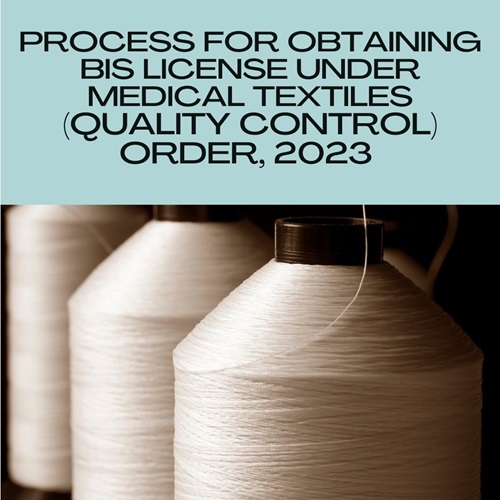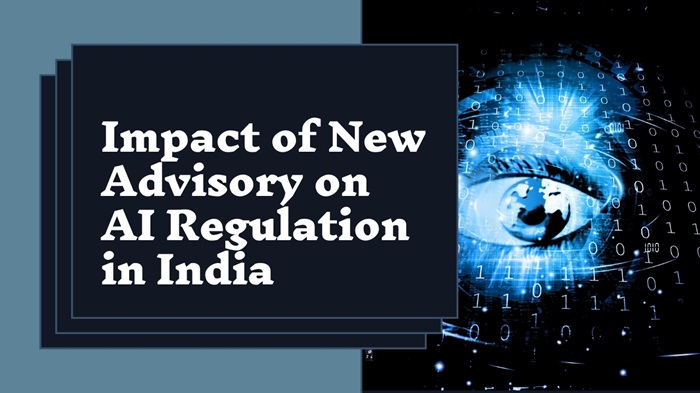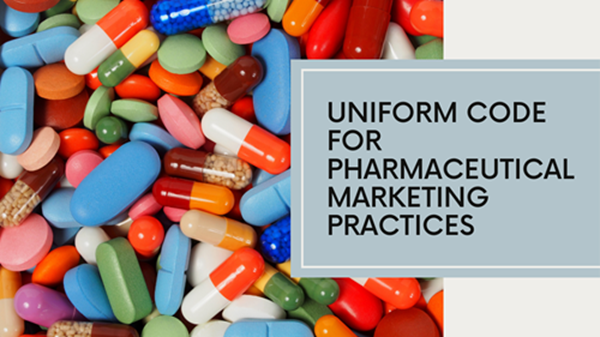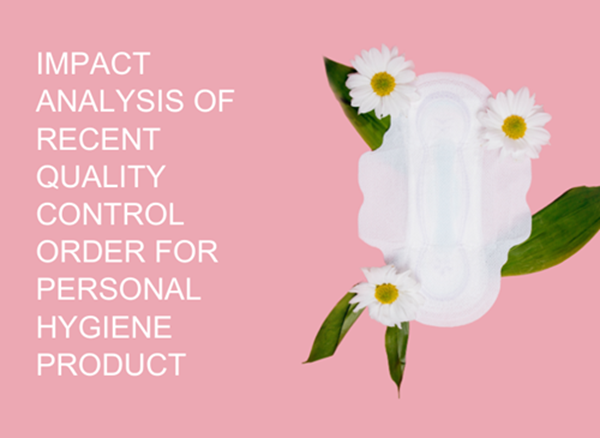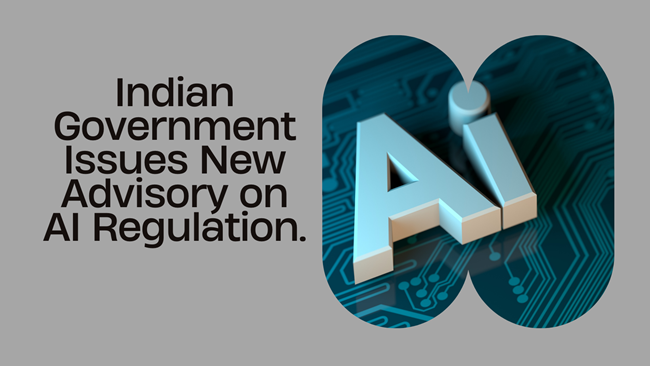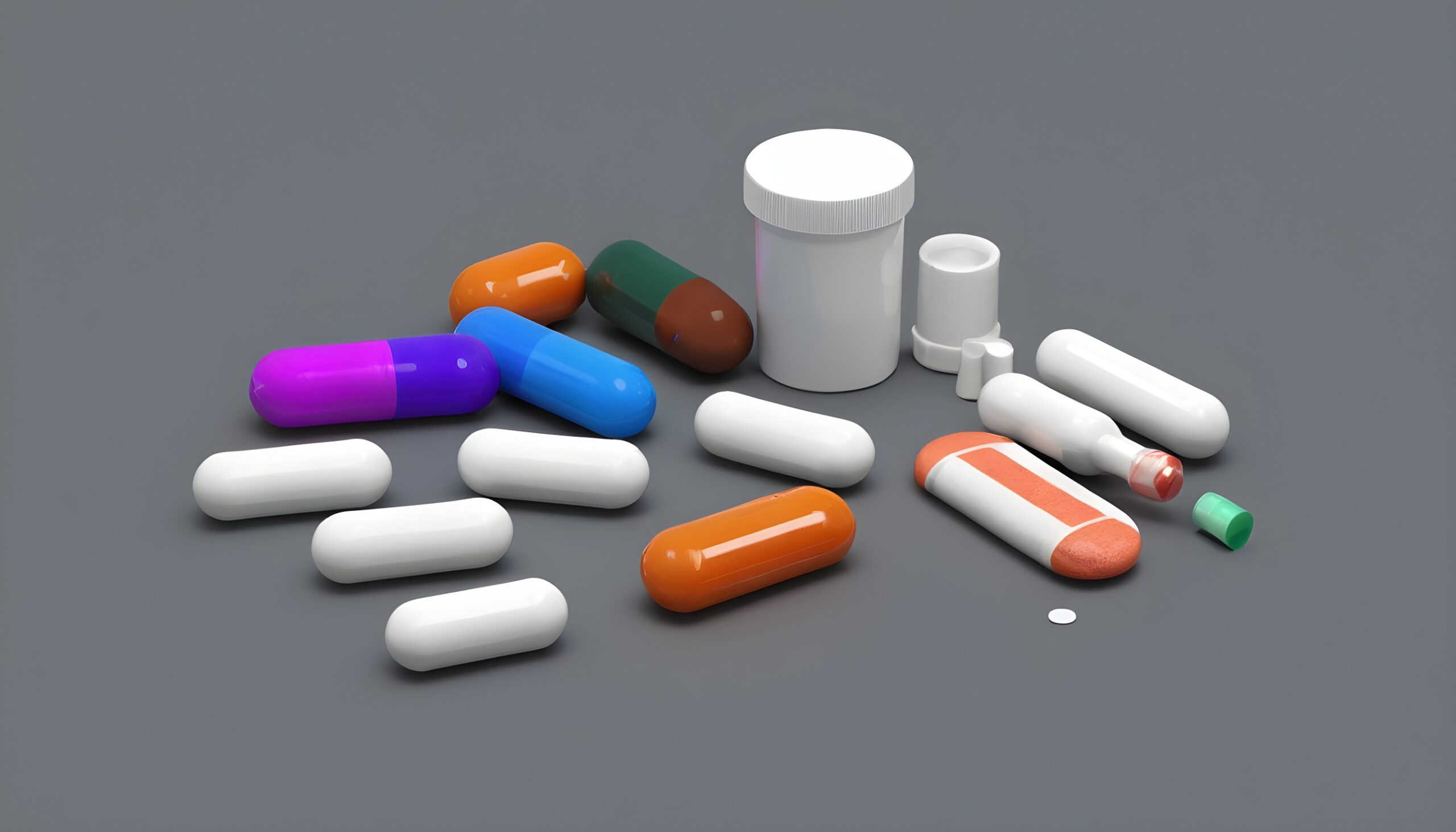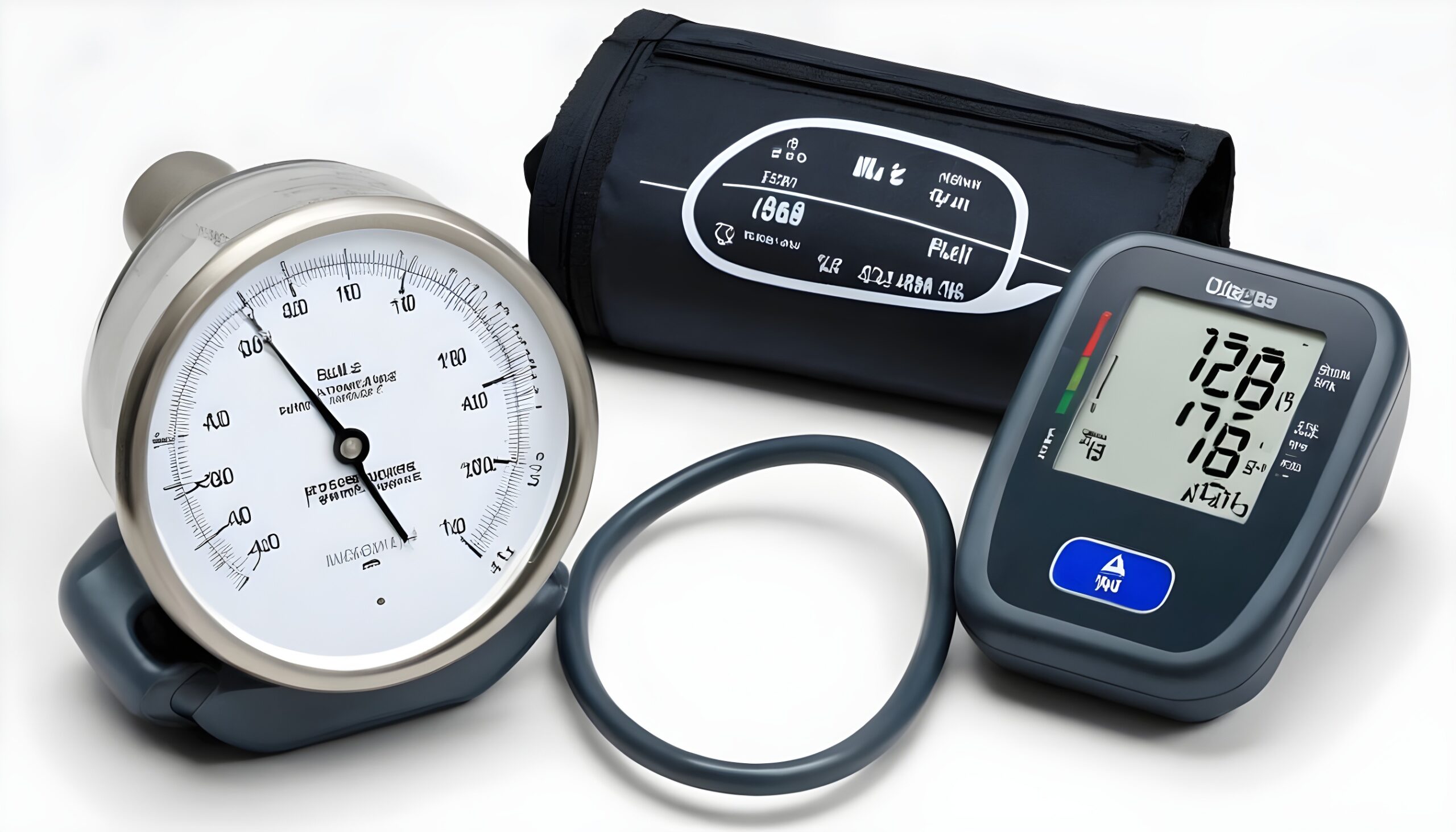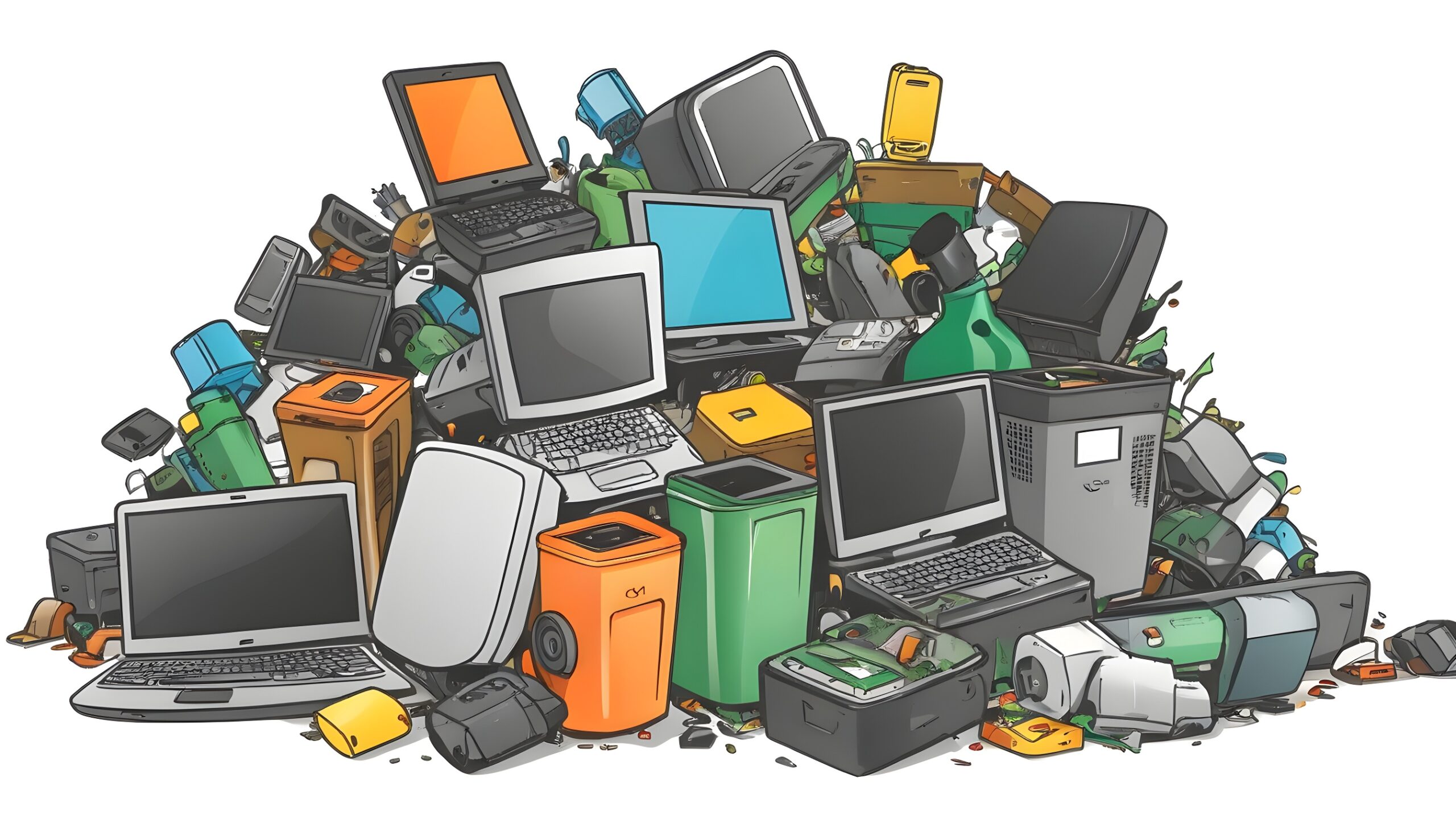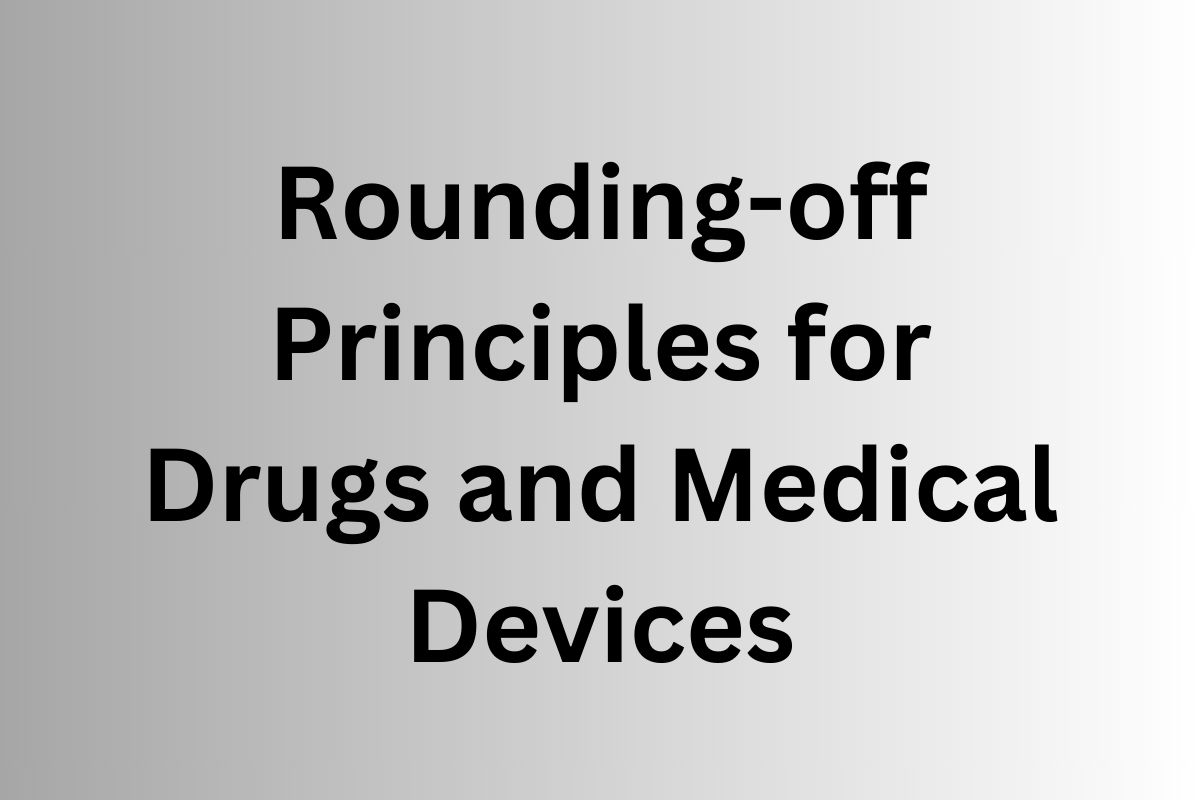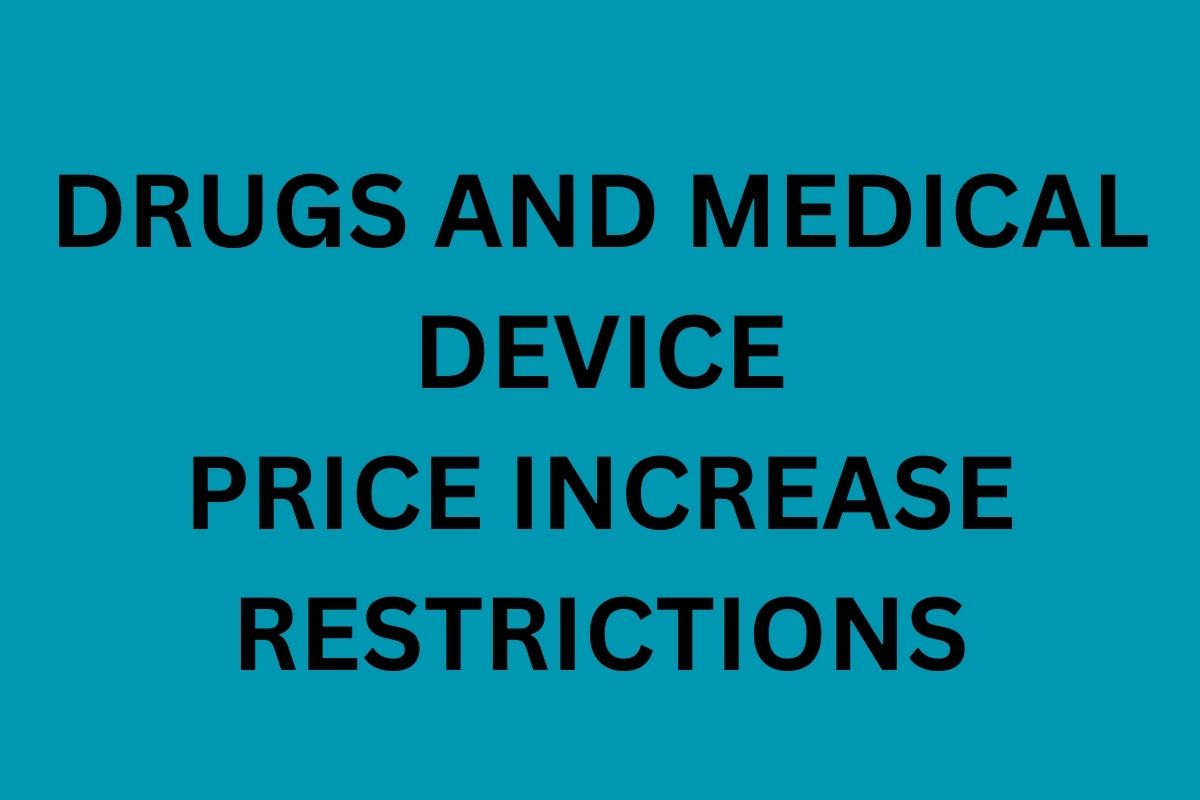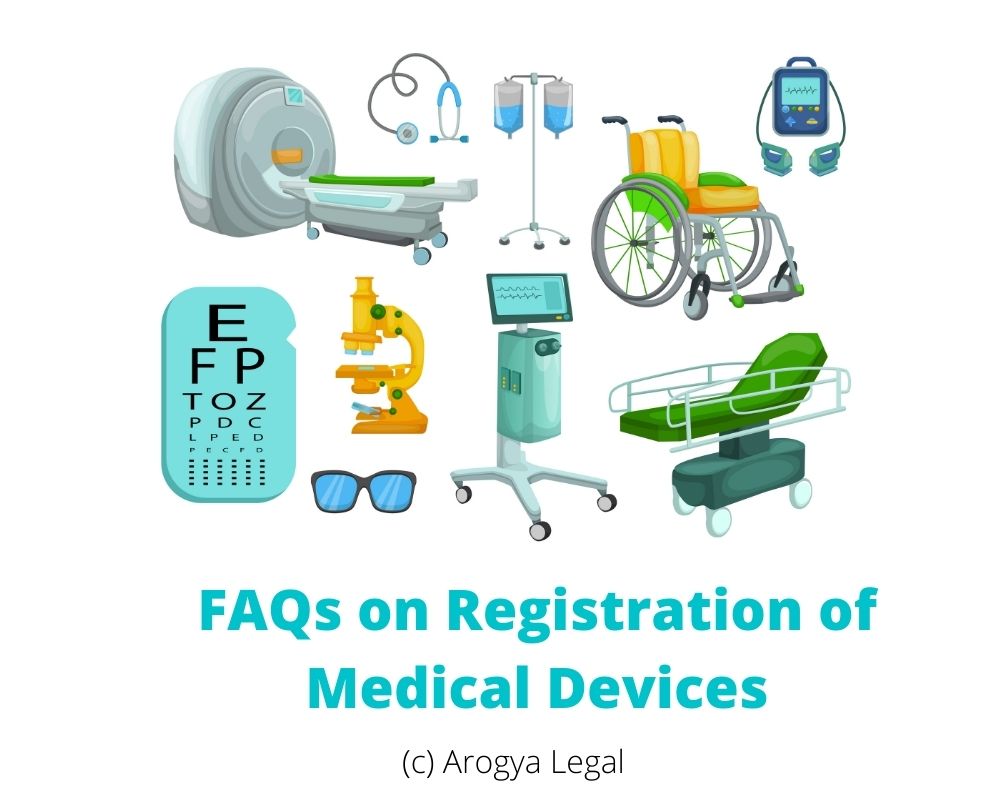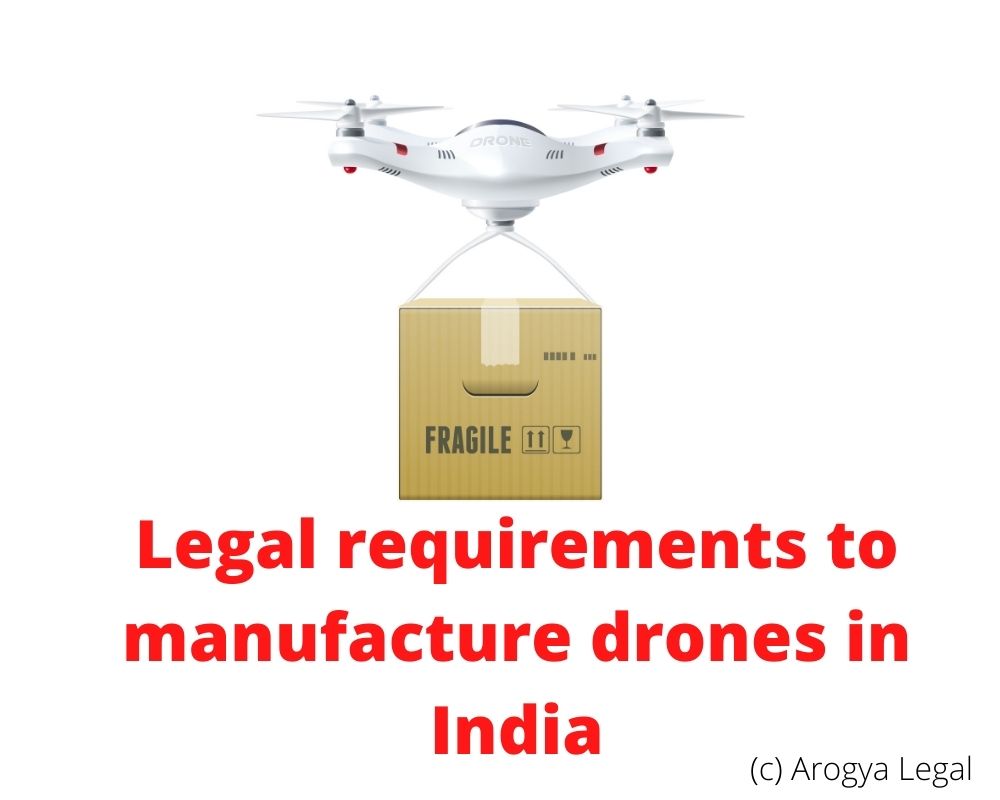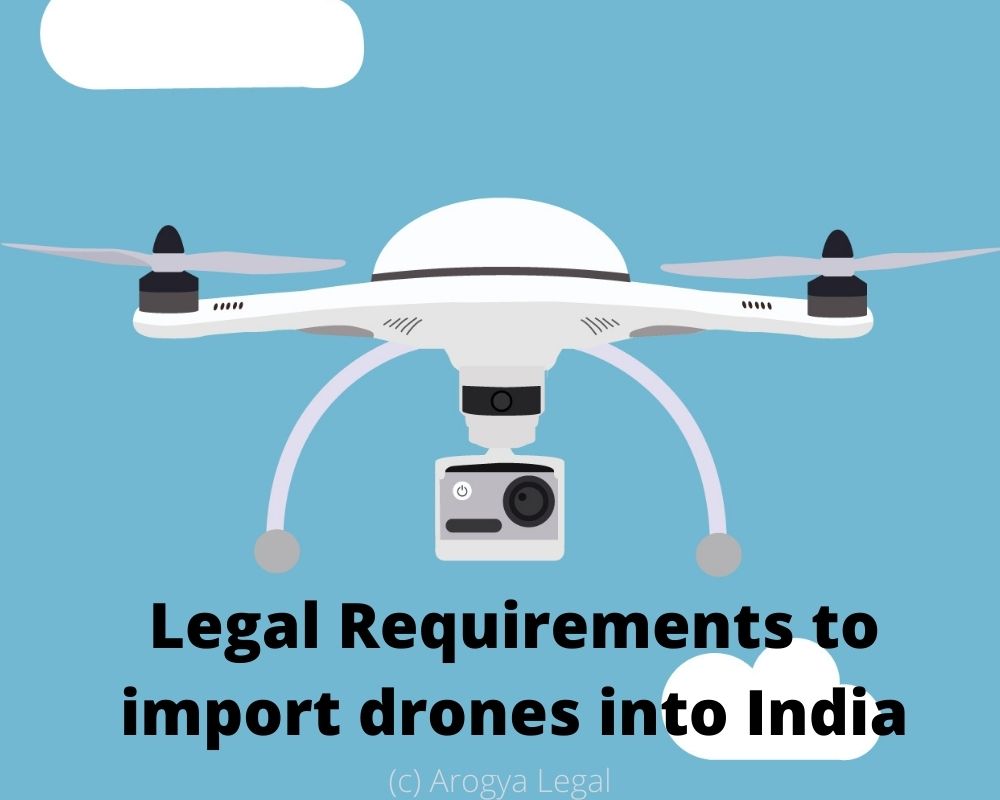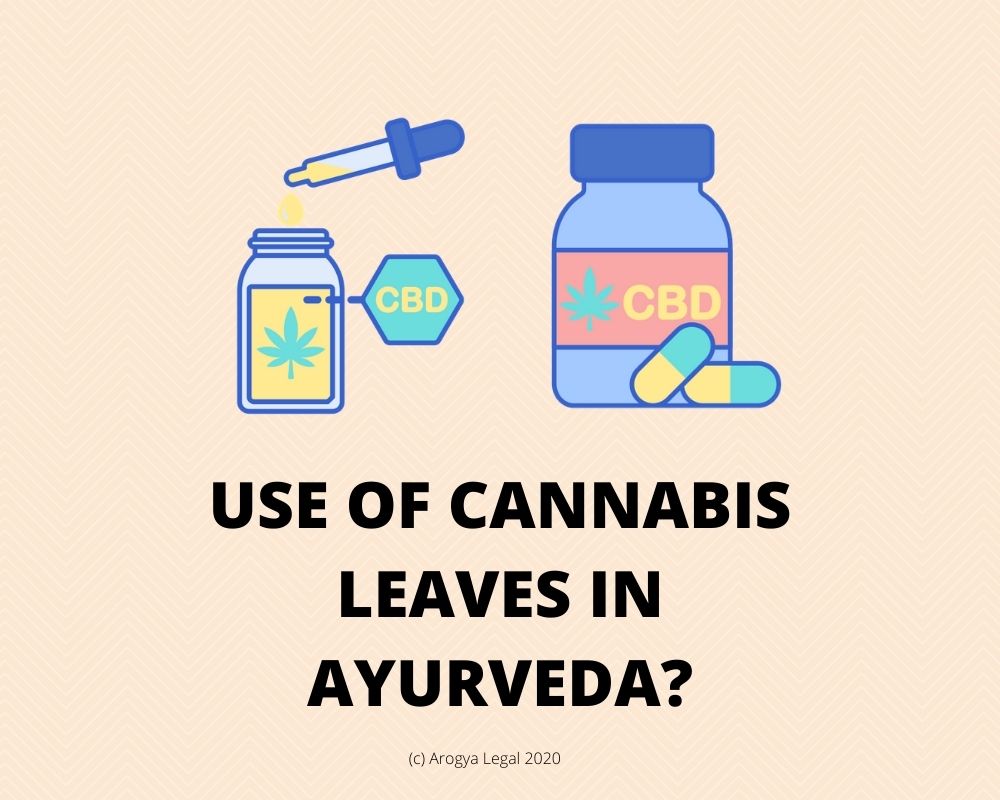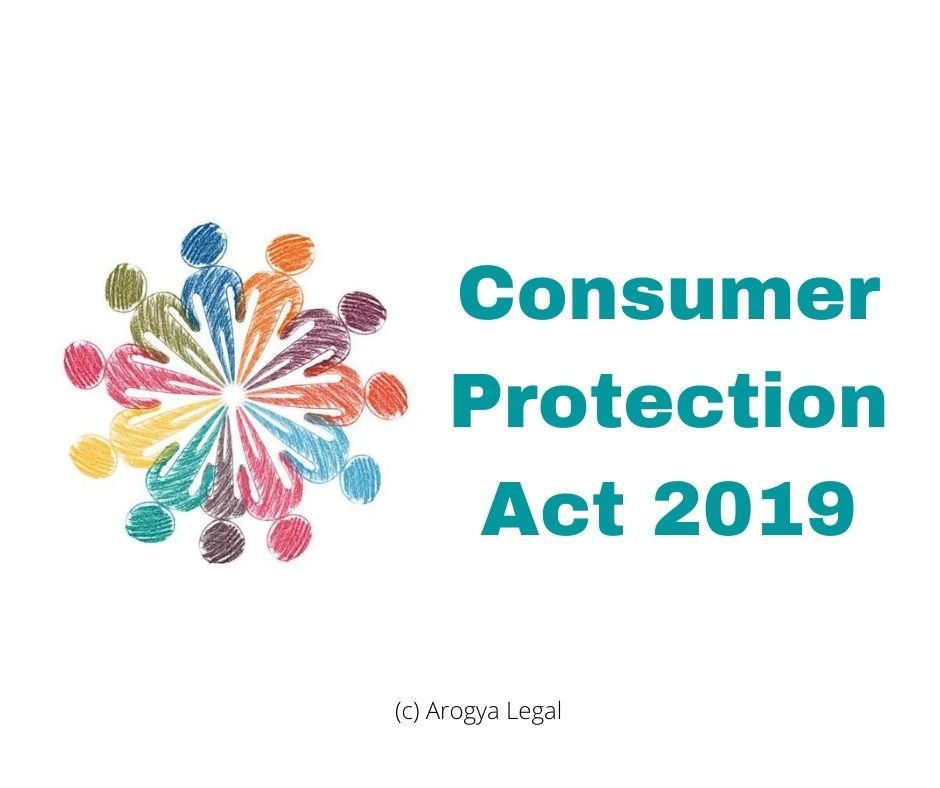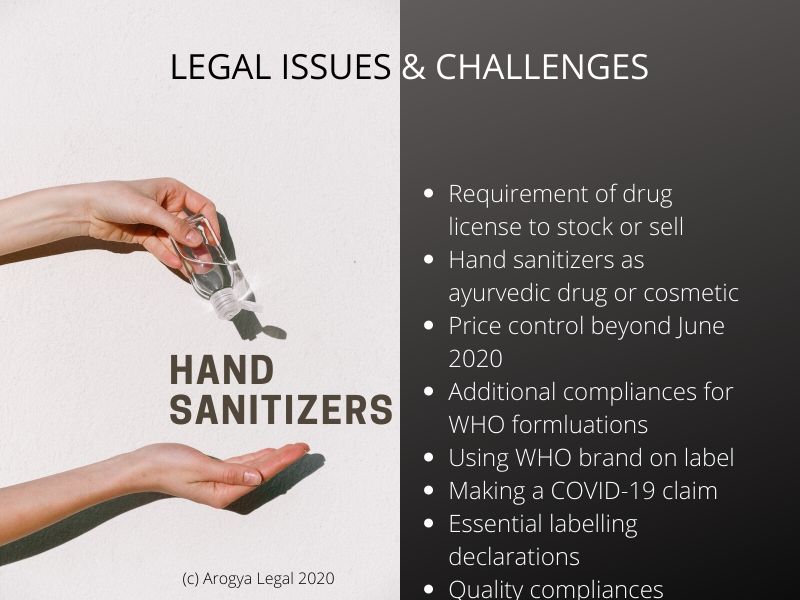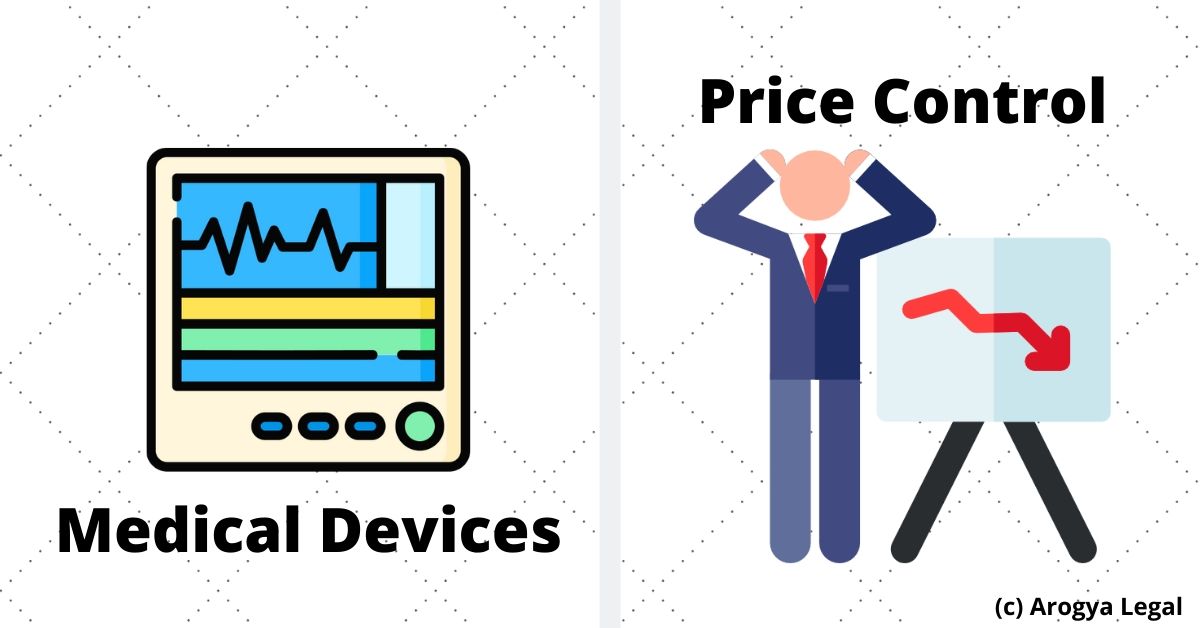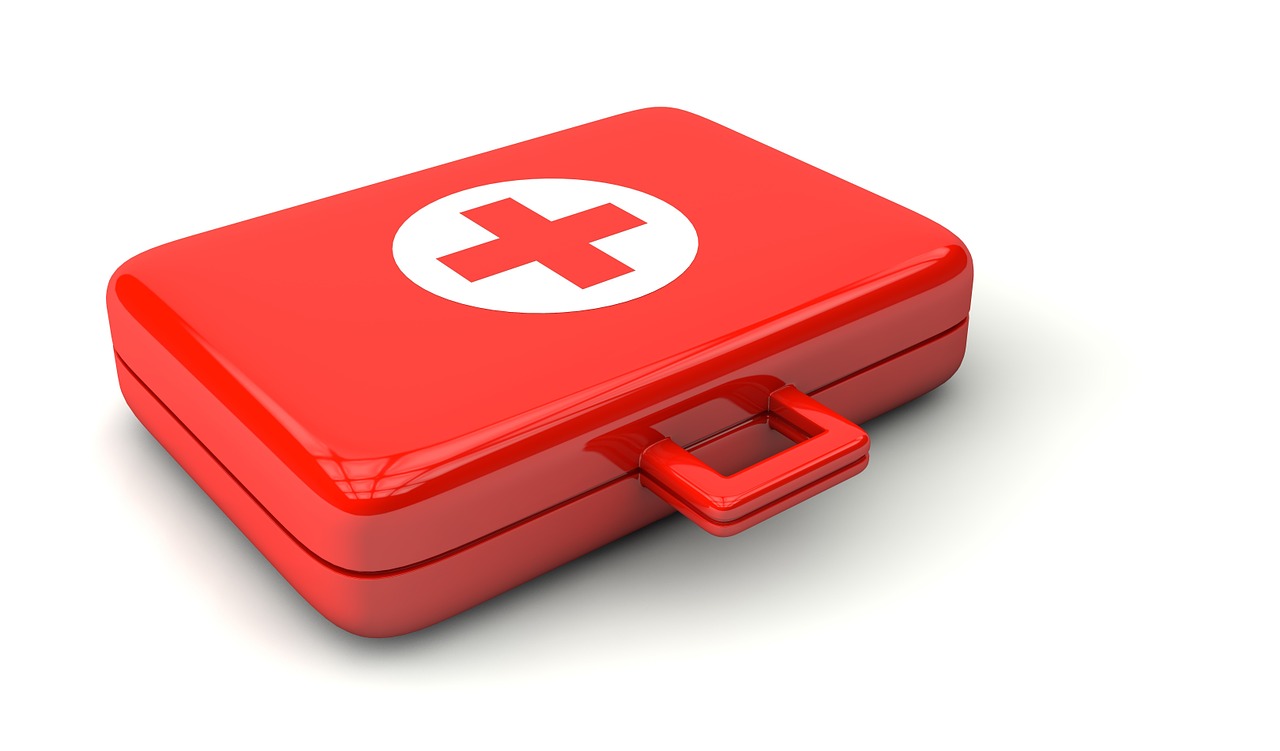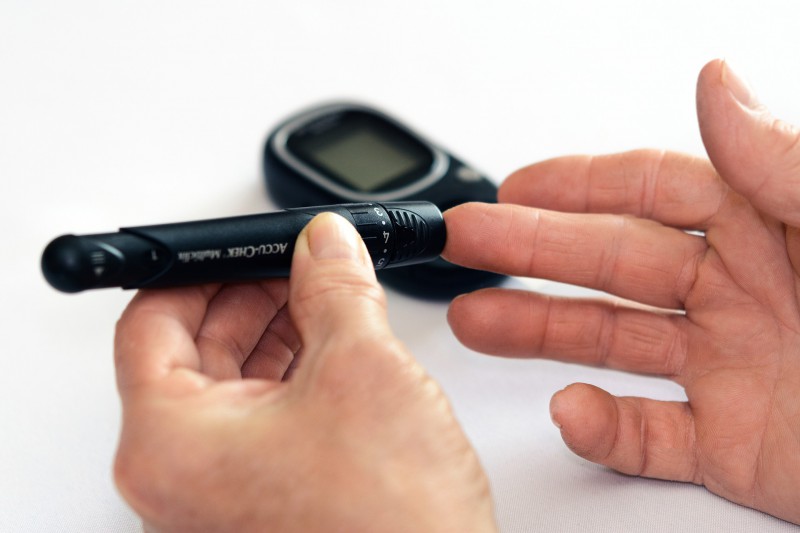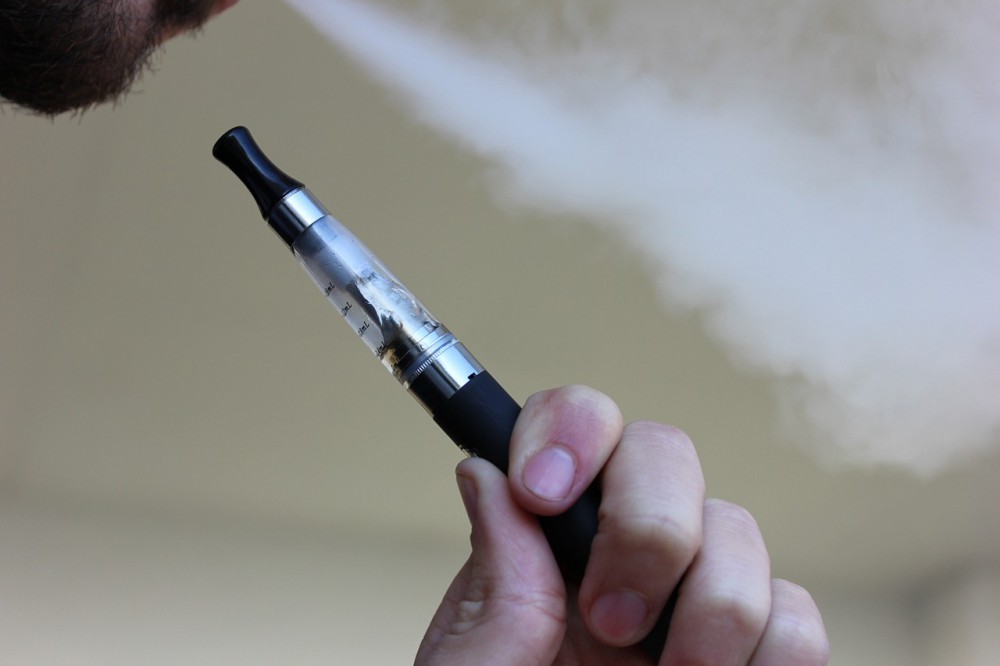PROCESS FOR OBTAINING BIS LICENSE UNDER MEDICAL TEXTILES (QUALITY CONTROL) ORDER, 2023
Introduction: Medical textile products such as sanitary napkins, baby diapers, reusable sanitary pad/ sanitary napkins/ period panties, dental bib/ napkins, bedsheet, pillow cover, and shoe covers have been regulated for quality in India by the Medical Textiles (Quality Control) Order, 2023 (the “Order”). The Order requires all manufacturers and importers of medical textile products to label …
STATUS OF REGULATION OF AI IN INDIA: IMPACT OF NEW ADVISORY
The Ministry of Electronics and Information Technology (MeitY) issued a new advisory on Artificial Intelligence (“AI”) on March 15, 2024 (“New Advisory”), scrapping the earlier version issued on March 1, 2024. The New Advisory has diluted the strict position taken by MeiTY in its earlier advisory. 1. CHANGES Though, the New Advisory has retained majorly …
UCPMP 2024 - Highlights and Summary of Key Differences from UCPMP 2015
India’s Department of Pharmaceuticals (DoP) has published The Uniform Code For Pharmaceutical Marketing Practices, 2024 (UCPMP 2024). The UCPMP is a code that governs the interaction between the industry and healthcare practitioners (HCPs/doctors) in India. The UCPMP 2024 replaces the UCPMP 2015, and is applicable to both pharma and medical device companies. In the paragraphs …
Medical Textiles (Quality Control) Order, 2023: Impact Analysis for Personal Hygiene Products
Introduction The Government of India notified the Medical Textiles (Quality Control) Order, 2023 (the “Order”) on 27 September 2023. This Order, drafted by the Ministry of Textiles in consultation with the Bureau of Indian Standards (BIS) mandates that certain medical textile products adhere to specified Indian Standards (IS) and bear the Standard Mark. Medical textiles …
Regulation of Artificial Intelligence in India: Scope of new advisory issued by Indian Government and assessment of impact on businesses
The Ministry of Electronic & Information Technology (MeitY) has recently issued an advisory which has the potential to regulate businesses that are using Artificial Intelligence (“AI”) models developed by them or third parties. In this article, we have analysed the scope of advisory, specifically to evaluate what compliance burden does it cast on businesses, and …
Can Emergency Contraceptive Pills be advertised in India?
Emergency contraceptive pills (ECPs), also known as morning-after pills (MAPs), have the capability to significantly reduce the risk of unwanted pregnancy. However, ECPs have their limitations and side effects. Given the prevalent use of ECPs, one would expect ECPs to be widely advertised to the public in India. However, it is rare to come across …
Draft Greenwashing Guidelines in India – Initial Understanding and Comments
The Indian consumer rights watchdog, Central Consumer Protection Authority (CCPA), has released the draft Guidelines for the Prevention and Regulation of Greenwashing, 2024 (the ‘Guidelines’) for public comments. The last date for providing public comments is 21 March 2024. The Guidelines aim to address the issue of unsubstantiated environmental claims made by businesses in their …
New NSWS Portal to obtain permission to import and manufacture new drugs for use in Clinical Trials in India
The India’s Central Drugs and Clinical Trial Regulator, The Central Drugs Standard Control Organization (CDSCO), has issued a public notice that it will no longer accept application for grant of permission to import or manufacture new drugs, unapproved active pharmaceutical ingredients (APIs) of new drugs, or investigational new drugs, which are to be used in …
New portal for medical devices registration in India (NSWS)
On January 01, 2024, India’s medical device regulator, Central Drugs Standard Control Organization (CDSCO) issued a notice that applications for certain medical device related regulatory approvals will not be accepted on the current medical devices CDSCO portal (CDSCO MD-Online portal) after January 15, 2024. Instead, they will be accepted through the National Single Window System …
India’s Central Pollution Control Board issues guidance and clarifications on E-Waste Management
Important clarification issued by India’s Central Pollution Control Board (CPCB) under E-waste Management Rules, 2022 for the importers of Electrical and Electronic Equipment (EEE) who are not required to comply with Extended Producer Responsibility (EPR) requirements. India’s Central Pollution Control Board has issued a clarification under E-waste Management Rules, 2022 (EWM Rules) identifying importers of …
Timelines for obtaining import license for medical devices including IVD's in India
The import of medical devices including in-vitro medical devices (hereinafter referred to as “medical devices”) in India is regulated by India’s central medical device regulator, the Central Drugs Standard Control Organization (CDSCO). In order to import a medical device into India, the importer has to make an application for import license Form MD-14 of Medical …
Rounding-off Principles for Drugs and Medical Devices under Drugs (Prices Control) Order, 2013
In this article, we have discussed rounding-off principles that manufacturers and importers of drugs and medical devices should follow while determining the maximum retail price (MRP) of their products. What is rounding-off?Rounding-off refers to adjusting a fractional price of a drug or medical device to the nearest rupee, or the nearest paisa, depending on the …
PERMISSIBLE PRICE INCREASE AND CALCULATION OF OVERCHARGED AMOUNT UNDER DRUG PRICES CONTROL ORDER (DPCO)
The Division Bench of the High Court of Delhi, in the case of Union of India v Bharat Serums, has laid down how the overcharged amount should be calculated by India’s drug price control regulator, National Pharmaceutical Pricing Authority (“NPPA”). The judgement will have a significant impact on existing as well as future demands for …
Frequently Asked Questions on new registration requirement for medical devices in India
All medical devices that are manufactured in India or are imported into India have to either be licensed or registered by October 1, 2021. If a medical device is manufactured or imported after October 1, 2021 without registration or license, it will be deemed to have been manufactured or imported in violation of Indian law, …
The Liability Conundrum for Telemedicine Platforms in India: Striking a Balance between Vicarious and Intermediary Liability
Introduction The COVID-19 pandemic, coupled with legitimisation of telemedicine in March 2020, has propelled the popularity of telemedicine manifold, with telemedicine platforms at the forefront. A question that arises is what the liability of these platforms is for any mishaps or complaints that patients may have about the consultations that they have with doctors through …
Legal requirements to manufacture drones (Unmanned Aircrafts) in India
Manufacturing drones [also referred to as Unmanned Aircraft System (UAS) or Remotely Piloted Aircraft System (RPAS)] in India is regulated by multiple laws including: Aircraft Act, 1934, Indian Wireless Telegraphy Act, 1933, Indian Telegraph Act, 1885 and Sea Customs Act, 1878 (as adopted by the Customs Act, 1962). In this article, we have described the …
GUIDE TO MANDATORY LABELLING REQUIREMENTS FOR COSMETICS IN INDIA
Regulatory declarations usually do not receive the same importance as cosmetic product claims and design, but they are essential nonetheless and may invite liability if they are found to be missing from a product package. The above statement may apply to cosmetics sold all around the word, but is especially true for cosmetics products sold …
Legal requirements to import drones (Unmanned Aircrafts) into India
The import of drones [also referred to as Unmanned Aircraft System (UAS) or Remotely Piloted Aircraft System (RPAS)] into India is governed by multiple laws, including: Aircraft Act, 1934, Indian Wireless Telegraphy Act, 1933, Indian Telegraph Act, 1885, Sea Customs Act, 1878 (as adopted by the Customs Act, 1962), and the Foreign Trade (Development and …
The use of cannabis leaves in Indian ayurvedic medicine – legalities and limitations
In India, the use of cannabis and cannabis leaves in medicines has caught public imagination. Contrary to popular perception, the use and consumption of cannabis and cannabis leaves is not entirely prohibited in India. It is permitted for medical and scientific purposes, subject to compliance with applicable laws. In this article, we have discussed the …
New Consumer Protection law in India: A Simple Overview (Seller Beware!)
On July 20th, 2020, the new Consumer Protection Act, 2019 came into force in India, replacing the previous enactment of 1986. The new Act overhauls the administration and settlement of consumer disputes in India. It provides for strict penalties, including jail terms for adulteration and for misleading advertisements. More importantly, it now prescribes rules for the …
Alcohol-Based Hand Rubs and Sanitizers - Regulatory requirements, uncertainties and important considerations for doing businesses in India
Summary: Due to the sudden spurt of demand for hygiene products due to COVID-19 virus pandemic, several manufacturers and marketers in India are now selling hand sanitizers containing ethanol or isopropyl alcohol as an active ingredient. However, regulatory uncertainties, especially surrounding requirement of drug license for stock and sale and scope of price control are …
India’s new price regulation for medical devices and equipment – impact on price and supply chain due to Drugs (Prices Control) Order, 2013
Summary On February 11, 2020, the Indian Government had gazetted a notification that brought all medical devices and medical equipment sold in India under existing quality and safety regulatory framework by declaring them as “drugs”. However, this notification has exposed all medical devices to India’s drug price control regulation that was put in place to …
India’s new Telemedicine Practice Guidelines – Analysis and Do’s and Don’ts for Doctors offering teleconsultation
Summary: The Indian Government has published Telemedicine Practice Guidelines (“Telemedicine Guidelines”) on March 25, 2020. These guidelines finally clarify India’s position on the legality of teleconsultation. It is now perfectly legal to provide teleconsultation by registered medical practitioners (M.B.B.S and above) in line with the requirements of the Telemedicine Guidelines. It has been clarified that …
All medical devices in India to be regulated as “drugs” – Medical Devices (Amendment) Rules, 2020
Summary: The Indian law that regulates quality and safety of medical devices has been amended and it will now apply to all medical devices, effective April 1, 2020. Prior to the amendment, only 37 categories of medical devices were regulated or were notified to be regulated in near future in India. The immediate consequence of …
All medical devices to be regulated: Draft rules notified in India
The Ministry of Health and Family Welfare in India has notified the Draft Medical Devices (… Amendment) Rules, 2019 (Draft Rules) for public comments on October 18, 2019. By notifying these rules, the Indian Government has made its intention clear to regulate all medical devices in a phased manner. As of date, only twenty-three categories …
New Compliances for Health Research on Drugs, Medical Devices and Cosmetics in India
From September 16, 2019, all research conducted in India which focuses on human diseases or conditions in the context of a drug, medical device or cosmetics will have to be reviewed and overseen by a non-governmental body known as Ethics Committee. More specifically, from that date, the Drugs and Cosmetics Act, 1940 (DCA) will begin …
Highlights - Consumer Protection Act, 2019
The Consumer Protection Act, 2019 (“New Act”) heralds the beginning of a new era of consumer rights in India that are in sync with new-age consumer expectations. It carries forward the rich legacy of The Consumer Protection Act, 1986 (“Act”) that was considered path-breaking at the time of its enactment, but which was unable to …
Crackdown on Corruption in FDA in India - Key takeaways from recent developments
Two separate incidents, one relating to India’s central drug law enforcement body- the Central Drugs Standards Control Authority (CDSCO), and another relating to a State drugs law enforcement body- the Himachal Pradesh Drugs Control Administration (HPDCA), have received widespread attention. On August 16 2019, a very senior officer of the CDSCO was arrested while accepting …
E-Cigarette and ENDS ban in India: Analysis of laws, consequences and challenges
Last updated: June, 2019 May 31 is observed every year as the World Anti-Tobacco Day. On May 31 of 2019, The Indian Council of Medical Research (ICMR), the apex bio-medical research body of the Indian government, issued a formal recommendation to ban the sale of e-cigarettes and electronic nicotine delivery systems (ENDS) through-out India. The …
India exempts patented drugs from price control for a limited time, but patented medical devices continue to remain under price control
As of January 2019, the Indian Government has allowed importers and manufacturers of patented new drugs to price their product freely for a period of five years. The said five year window will begin from the date of the product’s commercial marketing in India. Prior to this development, patented new drugs which were not developed …
Ethical marketing and promotion of medicines
Time and again, the pharmaceutical industry has been accused of indulging in unethical practices concerning the marketing of medicines around the world. These unethical marketing practices are, in fact, a major area of concern for the Government as well as patient groups. Amongst all unethical practices, the one that attracts the highest amount of scrutiny …
Confidentiality and Non-Disclosure Agreements – Key Things to Keep in Mind before Disclosing Confidential Information
All health-focused businesses, whether of pharmaceuticals, medical devices, food & beverages, cosmetics or healthcare, hold a large amount of information that is confidential or proprietary to the business. While soliciting investments from investors, or in the course of finding the right business partners, it becomes vital to disclose or share such information for validation. At …

